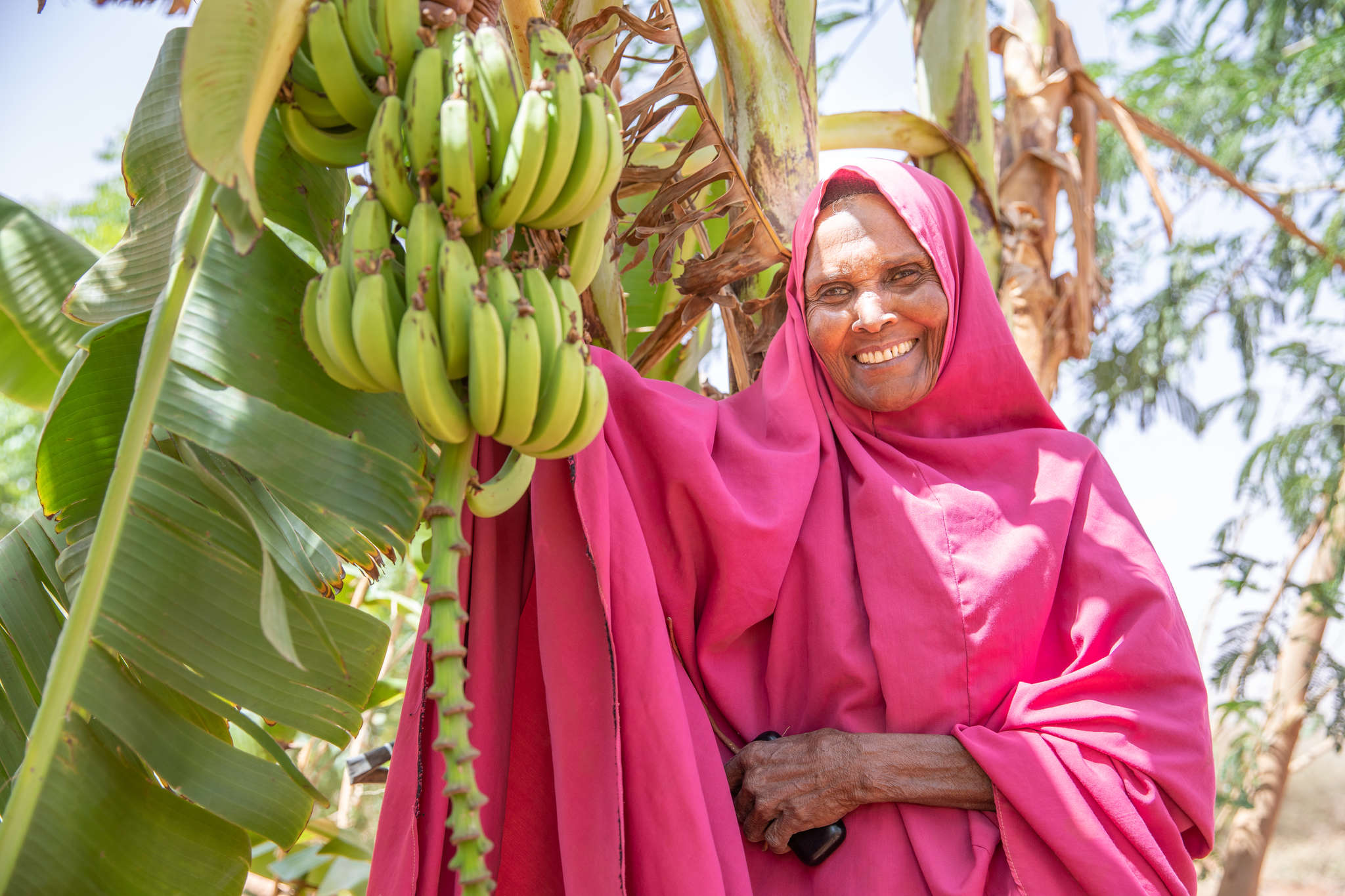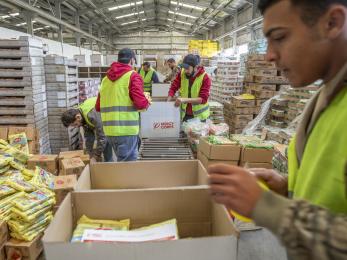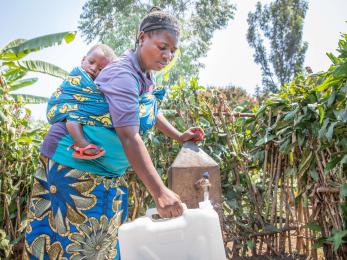Q&A: What you need to know about water scarcity in Jordan
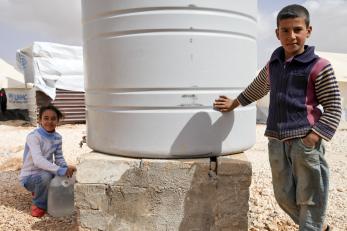
Jordan is the third-driest country in the world, and more than 600,000 Syrian refugees are now living there alongside their Jordanian neighbours. Clean water was already scarce, and now the limited resource must serve a much larger population.
It’s summer now, and the hot, dry conditions in Jordan only make the need for water more dire. Unfortunately, the country’s water network is breaking down — much of the water that Jordan does have is lost to leaks in the pipeline.
There simply isn’t enough water to go around, and people must ration enough to use for drinking, bathing, and cooking. The lack of sufficient water causes stress, serious health problems, and tension between native Jordanians and Syrian refugees.
But a team of dedicated Mercy Corps engineers is working to rebuild the ageing water system so that both Jordanian and Syrian refugee families have enough clean water to stay healthy. Their work has already improved access to clean water for 500,000 people in Jordan.
We recently spoke with Ghassan “Gus” Hazboun, Mercy Corps’ Water Engineering Director, about the problem at hand and how his team is finding long-term solutions to this complex challenge.
Q: What is the water situation in Jordan now?
Gus Hazboun: Jordan right now is the third poorest country in water. Our resources are limited. We don't have any rivers — we have no water sources except aquifers. The aquifers are depleting right now, we are losing several meters a year. It's becoming very alarming.
We need a solution for the water scarcity right now. We can keep drilling wells, but it's not the solution. It's a temporary fix, but it's only going to help Jordan for the next few years.
Q: How has the influx of refugees affected the problem?
The network was providing barely enough water for Jordanians before the war in Syria. Now, with the huge influx of refugees, there is frustration with having to share resources.
Most Syrians came from having a lot of water — they didn't worry about their daily use of it — but Jordanians, for years and years they have been watching how much water they use, because they know that there’s not enough.
Now there is tension with adding more people. Let’s take Mafraq [city northeast of Amman], for example. It went from 60,000 to 200,000 residents. So adding that many people to the area definitely caused tension between Jordanians and Syrians.
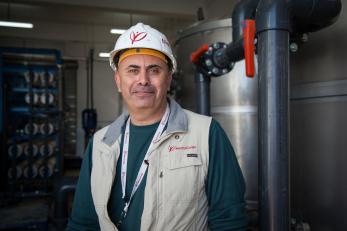
Q: And there are problems with the country’s water network, is that right?
The old pump stations need rehabilitation. They continually break down. And there is a lot of water leakage in the current network.
In the northern areas, the leakage can be up to 70 per cent of the water that flows through the network. So we have water that's already been treated, already been pumped from the aquifer to far-away places, and then we lose that water in the network.
Q: What is Mercy Corps’ strategy to improve Jordan’s water system?
We are trying to help as much as we can by improving both the quality and the quantity of water in Jordan and repairing the water network.
We cannot just concentrate on producing more water without also addressing the energy used and the leakage in the old pipes. We must redesign the pumps so they are more efficient and use less energy. But they will still cause more leakage in the network.
So the best thing we can do, the only way forward, is to treat the network — to fix any damage and spare the waste of water. Reclaiming that wasted water is better than finding a new source of water.
Q: What are some specific ways that we are helping?
We started with two wells in Zaatari refugee camp, and now we have three wells there, one well in Azraq camp, and several projects in host communities.
We recently developed a well near the border between Jordan and Syria. The water comes here, to the water treatment and filter area. And now we are ready to build a new pump station, control building, and a 500-cubic-meter reservoir.
This infrastructure is very important for the northern areas, including the city of Mafraq. The water we are providing goes to all the houses and we are supplying everybody, both Jordanians and Syrians.
After we build this new pump station, it will last at least another 20 or 30 years without any major issues, and it will supply water for the community without any interruption in supply.
Q: Are we working with the local government on the issue?
These projects, they've been needed for years. But due to limited financial resources, they could not be done. So we’re working with the Jordanian government’s plan and helping complete the necessary projects. But we do it according to priorities. We look at the areas that have the most refugees, and we try to help the whole community there.
We try to help by adding more water, reducing leaks, and making things more efficient. We are helping the government achieve their goals by rehabilitating the water network and building new sources of water.
Q: Is the large scale of this effort unusual for a humanitarian organization?
Yes. Most organisations work on small networks, or they provide vouchers for people to buy water. But these projects — adding reservoirs, building pump stations, repairing networks — we are the first people here in Jordan to do such work.
It’s a big project. We are doing studies to learn how much water people are getting each week. We’re trying to check the network and find where the leaks are. And we’re doing supervision and design on new projects. Mercy Corps is the only organisation here doing such infrastructure and water projects.
Q: How do you feel about the work you and your team are doing?
I am proud to work for Mercy Corps. We are doing big projects here in Jordan. And we are helping a lot of people — Jordanians and Syrians.
We are helping everybody today, and for years to come. It's not just something we are doing for the next few months. No. This project will last 30 years here in Jordan. And our name will stay on for years and years here in the area.
